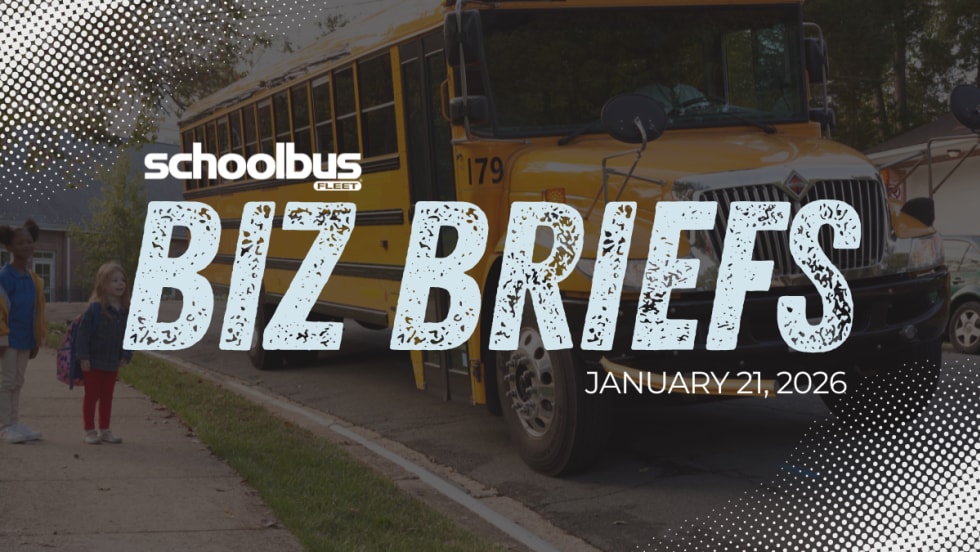The National School Transportation Association (NSTA) has commended Congress’s passage of another coronavirus stimulus package, which is made up of $900 billion in relief funds and includes $2 billion for transportation and $54 billion for K-12 education.
Private school bus operators provide nearly 40% of the nation’s school bus service in 200,000 yellow school buses with 300,000 employees, according to a news release from the NSTA. Each day, almost 26 million children rely on the school bus as their primary way to get to and from school in the safest way possible. The industry not only transports children to and from school, but it also provides critical delivery of nutrition, supplies, and Wi-Fi to students who cannot attend school in-person.
The industry has suffered severe economic losses and furloughed thousands of employees over the last eight months of the pandemic, according to the NSTA, which estimates that private school bus operators have lost $3.5 billion in revenue (about 45%) since March due to many school districts not paying contracts during school closures.
The Consolidated Appropriations Act, 2021 contains over $900 billion in additional COVID-19 pandemic relief, including $2 billion for the Coronavirus Economic Relief for Transportation Services (CERTS) Act.
For the first time, according to the NSTA, Congress has created a direct relief program by providing grants to assist thousands of private school bus operators struggling due to the checkerboard of school closures throughout the pandemic. The industry has advocated for this legislation since it was introduced in May.
“The NSTA commends and thanks the sponsors of the CERTS legislation (S.4150 and H.R.7642), Senators Susan Collins and Jack Reed, as well as Congressmen Darrin LaHood and Albio Sires for their tireless support and help in ensuring the legislation was contained in the relief package passed by Congress on Monday evening,” the association stated in the news release.
The NSTA added that it also salutes the 60 senators and 271 House members who cosponsored the CERTS bills and noted that their “support was invaluable to achieving this positive result.”
“The CERTS provision in the coronavirus relief bill will provide needed relief for these companies to bridge the uncertainties of payment during a pandemic that is still raging, help keep our valued employees tied to our companies, and ensure our industry’s survival,” said John Benish, NSTA’s president and CEO of Cook-Illinois Corp.
“The real winners of the CERTS provision in the COVID-19 relief bill are the schoolchildren who will be ensured their yellow school bus and the school bus driver they rely on as the safest way to and from school will continue to be available to them when their school is in session or returns to in-person learning,” said Curt Macysyn, NSTA’s executive director. “While the final funding level is lower than we’d hoped, NSTA applauds Congress for recognizing the critical role of the private school bus industry and their need for relief.”
In addition to the CERTS provision, the legislation contains other important avenues for relief that will be helpful to many private school bus operators, according to NSTA. These provisions include $54 billion for K-12 education to relieve the budget pressures on school districts, continuation of provisions encouraging school districts to pay their employees and contractors, $284 billion for continuation of the Paycheck Protection Program (PPP) for first and second forgivable loans, business deductibility for PPP expenses, $20 billion for Economic Injury Disaster Loans, and extension of the Employee Retention Tax Credit.













